Ben Wolff’s Handcrafted Pots | Open Studio
Ben Wolff spins off a family tradition with his elegantly handcrafted pots for home and garden.
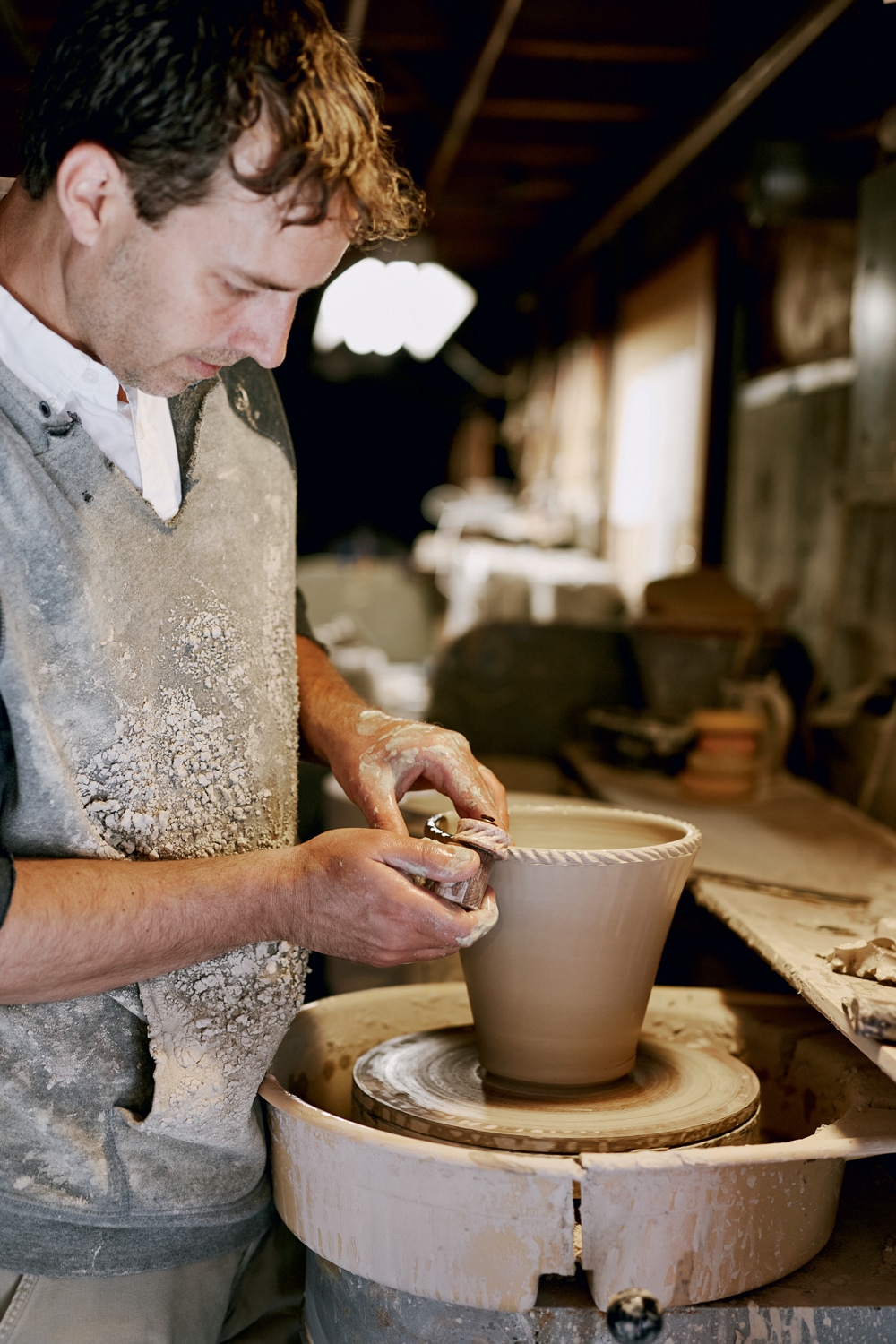
Coffee By Design | Portland, Maine
Photo Credit : Katherine Keenan
Photo Credit : Megan Haley
The music is twangy, languid, slow as a muddy river. It is a perfect foil to the action unfurling in the video—the rise and fall of a slippery chunk of clay, growing and collapsing, over and over, guided by sure fingers, until finally, in its last instant, it blooms, opening into a flowerpot.
The pot is a handmade Ben Wolff pot; the bluesy song is called “Mud,” by Ben and his music partner Simon Biddle. Ben is equal parts potter and musician, just as his elegant pots are comfortable in the home or the garden. A third-generation artist, he came to the craft early, as evidenced in a fading photo that captures a moment in amber: a beautiful 3-year-old up to his elbows in mud, standing confidently behind a potter’s wheel.
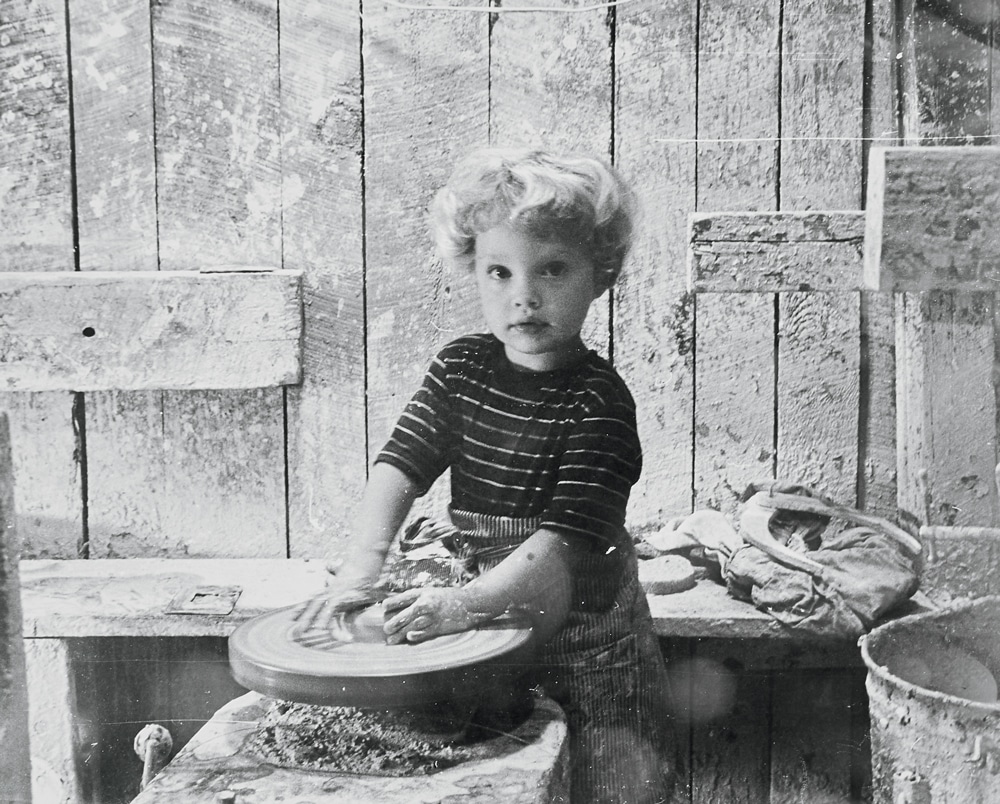
Photo Credit : Megan Haley
“I doubt I had Play-Doh,” Ben muses, from his basement studio in the town of Goshen, Connecticut. “My parents probably gave me clay.” He’s kept some of his earliest pieces, including one that’s “just a round blob with a hole in the middle.” His dad fired it, having written 1981 and Ben on the bottom, which means Ben was about 1 when he made it. But by the time that photo was snapped, “I already knew what the clay and the wheel felt like, the sensation of it spinning, the wetness of the clay, and the smoothness.”
So… Ben’s father is Guy Wolff. And as any serious gardener will tell you, Guy Wolff pots are the ne plus ultra, the pots that plants dream of occupying. Their lovely shapes, steeped in historical tradition and antique design, effortlessly enhance a garden’s beauty, and sometime in the 1990s, fervent gardeners took note, including Martha Stewart. Guy appeared on her TV show, and in later years, Ben, a potter in his own right, would appear too.
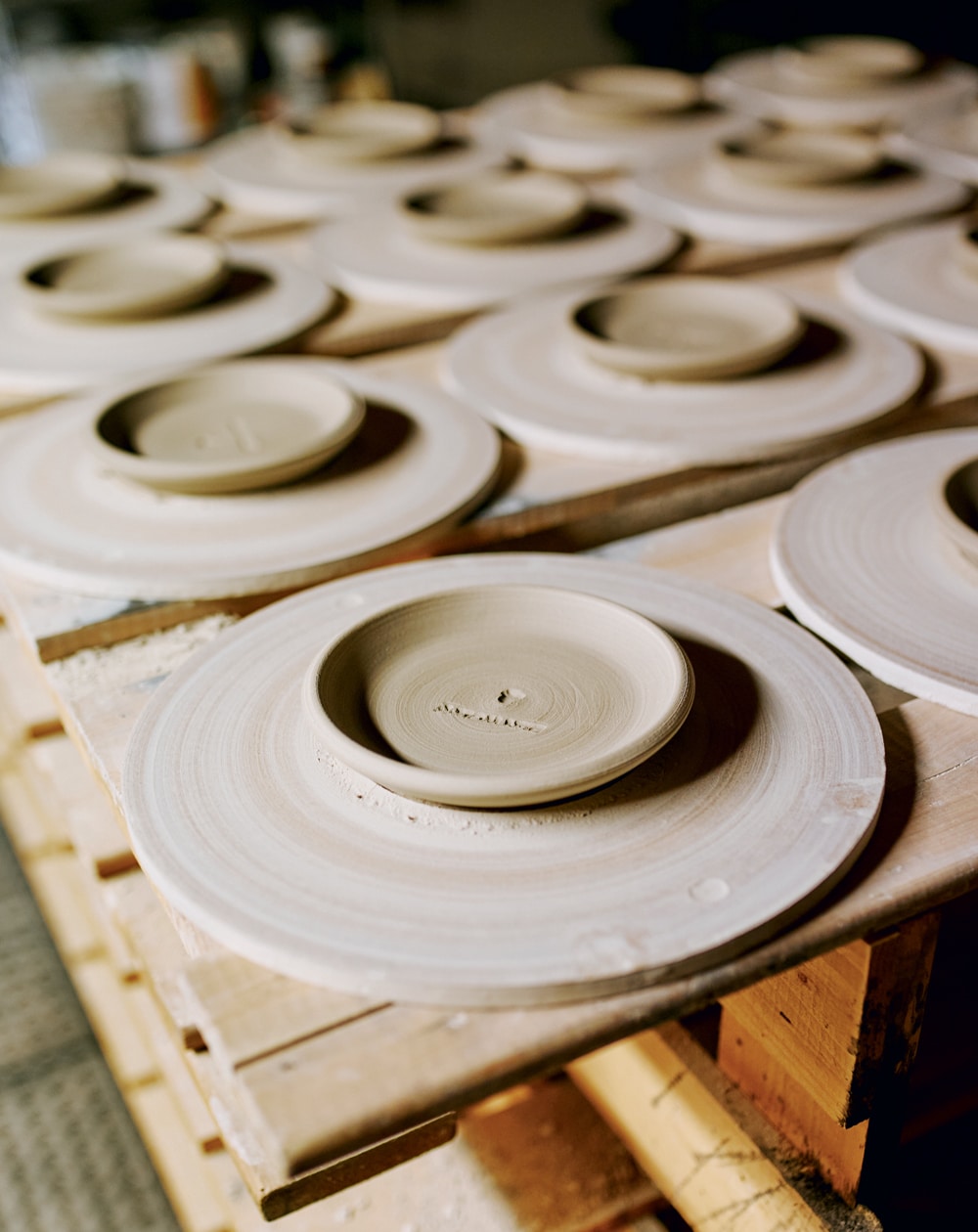
Photo Credit : Megan Haley
“I fell into liking it,” Ben says about the pottery gig. “My dad didn’t teach me like an apprentice, because I think he feared that if he did that, I might not be so into it. We always called it ‘osmosis learning,’ and I give him props, because he could have been like, ‘Hey Ben, you gotta make a thousand mugs, and you gotta learn how to pull a thousand handles,’ but instead he was like, ‘Ben doesn’t like making mugs, let him make the shapes he’s doing.’ He just let me go for it, and have fun.”
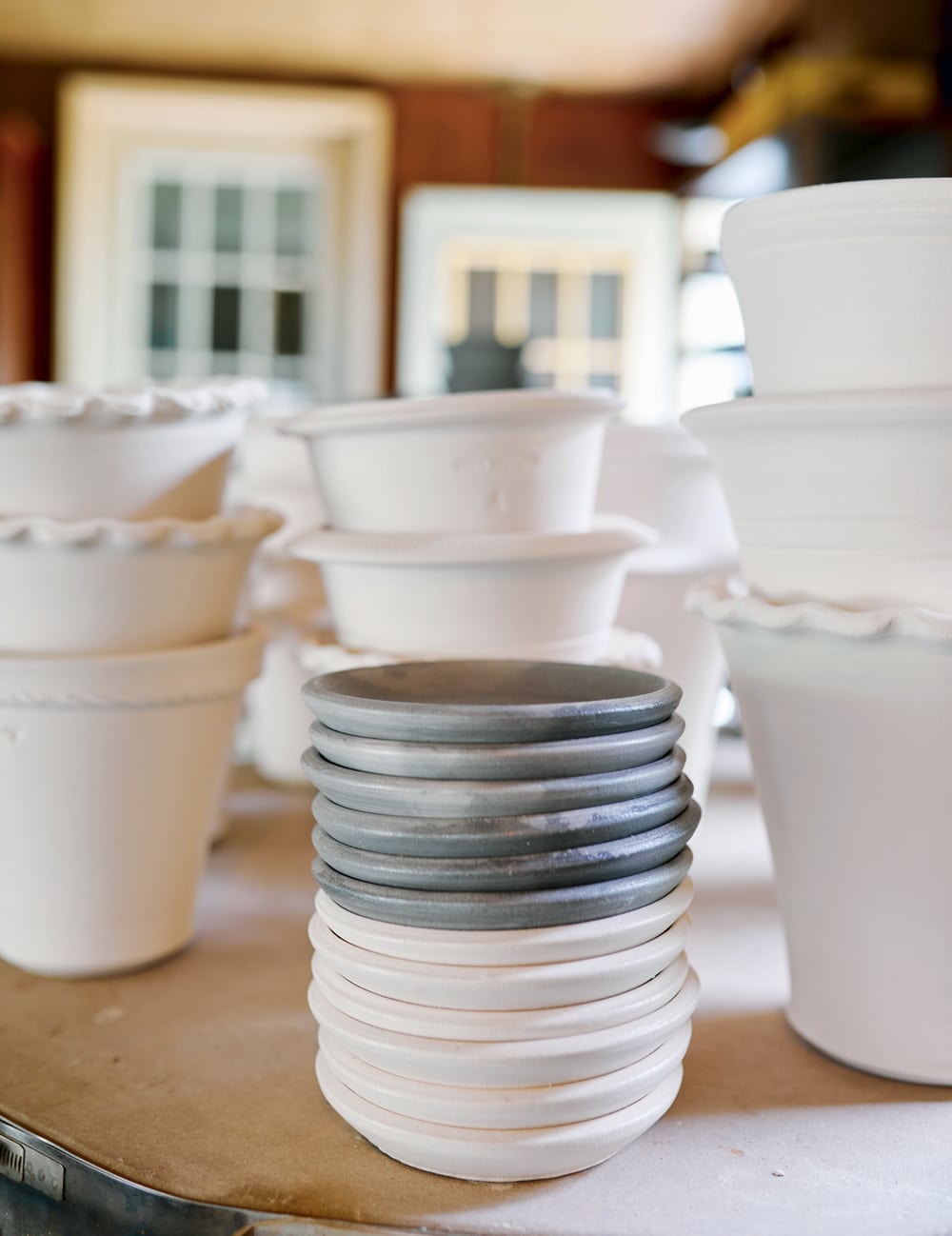
Photo Credit : Megan Haley
They built other things too—looms, a dulcimer—and played lots of music. But sometime in high school, Ben realized he could make a living throwing pots. In 1999, he started his own business and began favoring a more contemporary look, working with a special gray wash he developed and a white that “takes on a crazy patina,” he says.
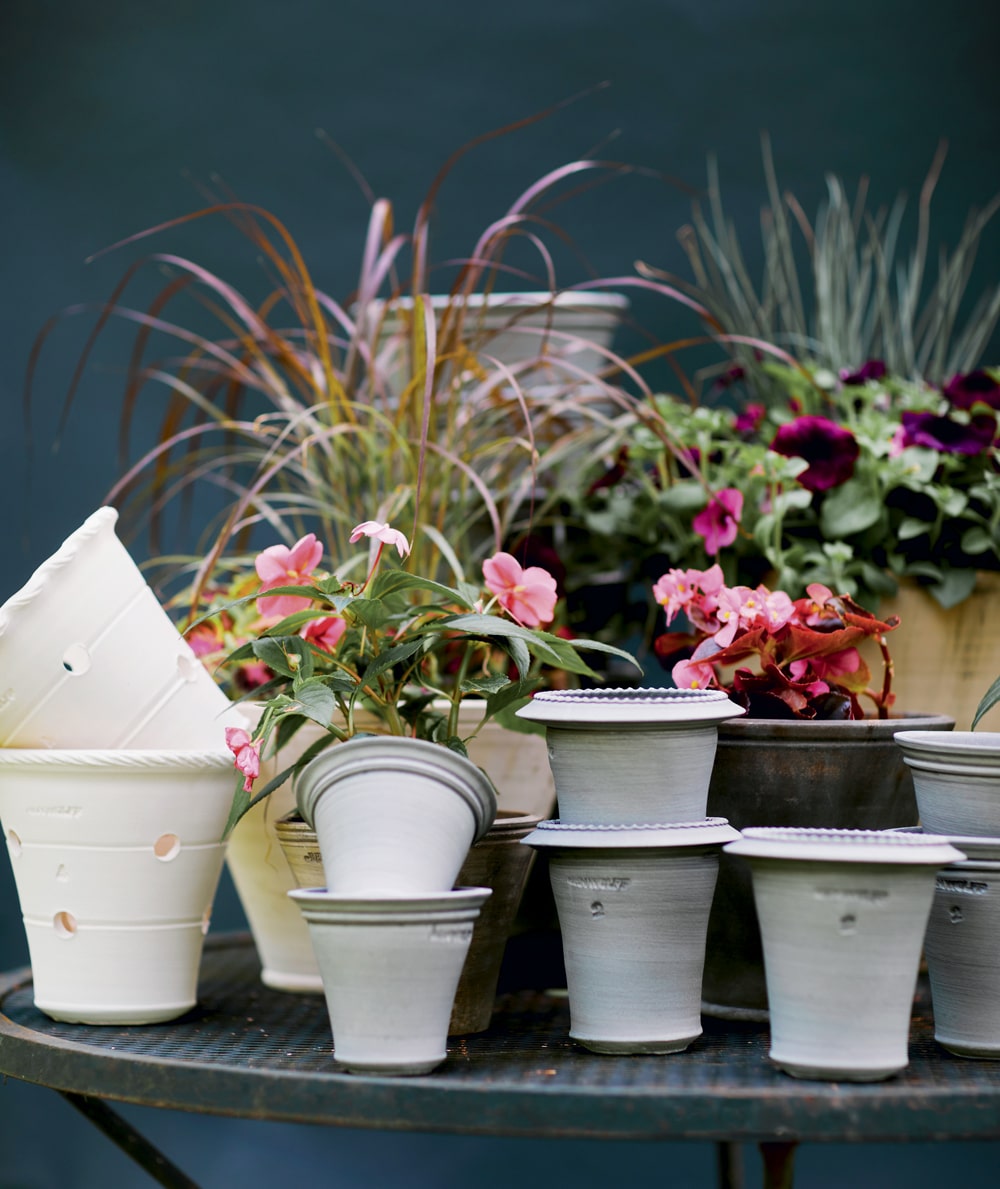
Photo Credit : Megan Haley
And now, “I make pots in a boiler room!” In the foreground lurks a Shimpo Whisperer electric pottery wheel. A backdrop of handmade tools hangs on the wall, most everything flecked with mud: coggles, also known as roulettes, that roll and leave behind decorative imprints; metal ribs, used to shape and smooth. He can’t pick up his iPhone without getting clay on it. And with orders pouring in, Ben’s scrambling to find time to move his studio from the basement to the garage, where his kiln is, so he doesn’t have to carry 1,000 pounds of clay downstairs to make pots, then lug the pots back to the kiln, all while dodging an impressive quantity of bears. “We’re overrun,” he says. “They literally come up to the window. At first it was horrifying; now we’re naming them….”
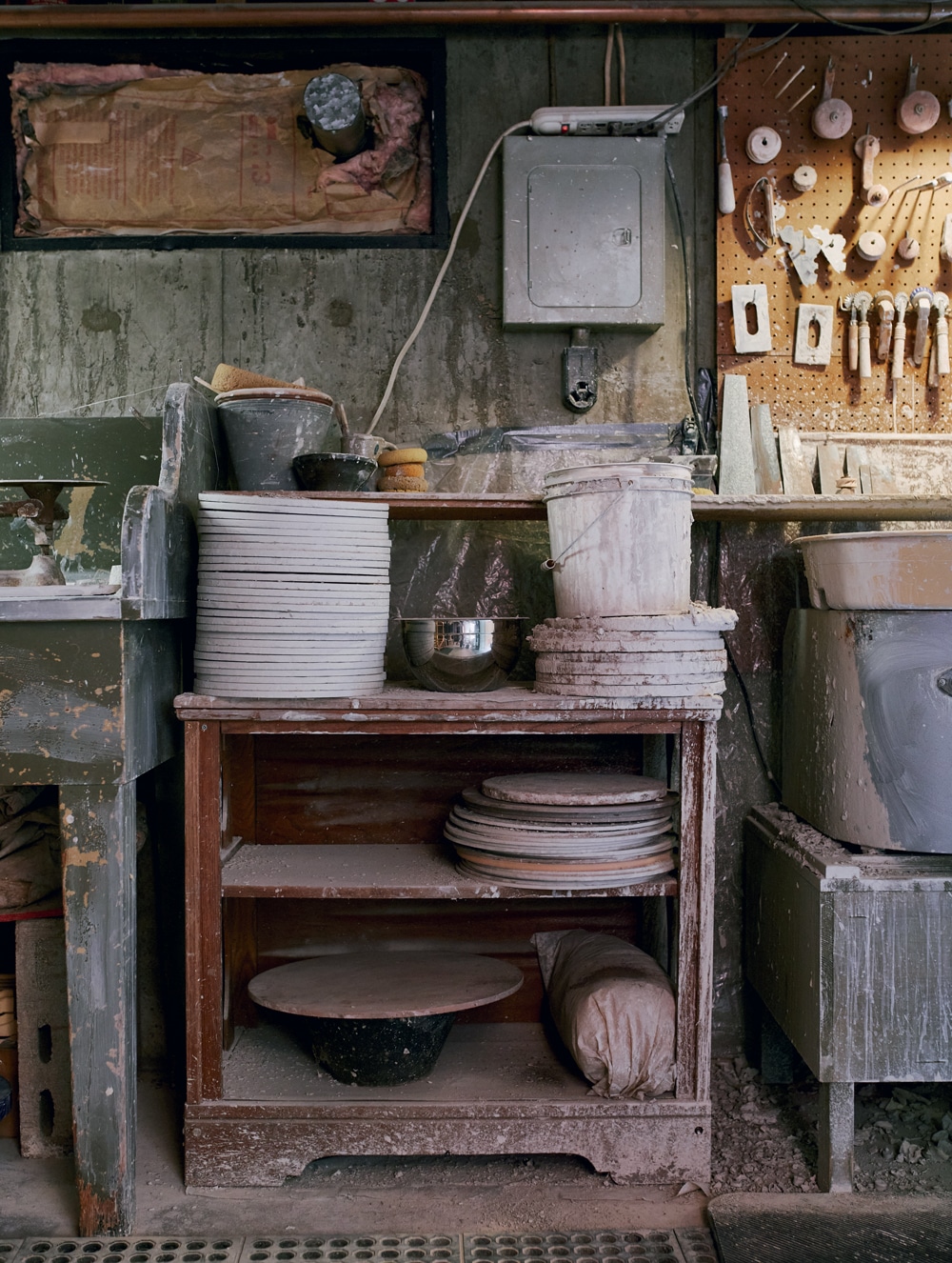
Photo Credit : Megan Haley
Meantime, orders are popping up, even as we speak. He just finished filming a spot for Martha Knows Best. (At her farm in New York, Stewart has written, “I am reluctant to introduce other types of pots: no red terracotta, or colored glazed pots, just cement or gray stone or Wolff pots.”)
Given a choice of throwing pots with his dad or playing music, he’s quick to say, “We could probably do both at the same time. That would be really cool. There were so many fun times when we would just stop and whip clay at each other. Pottery is very compressive, so your body is always tense. At certain moments, you need relief. And both of us have found that through music.”
Mostly, though, he’s grateful. “There is something about a spinning wheel and your hands being connected to earth and changing the earth into an object. It makes you focus—makes you just a little more connected.” benwolffpottery.com








Great pots and the patina on the white pit is very interesting and variable. So pretty. Good man too. Keep it up,Ben.
This is a great article …We do have so much fun when we get together …Ben has always made beautiful pots and fantastic music .. It is a joy to see him so busy …. I get to be a proud dad … All the best , Guy